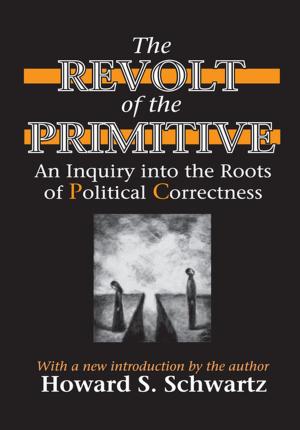Revolutionary Lives in South Asia
Acts and Afterlives of Anticolonial Political Action
Nonfiction, Social & Cultural Studies, Social Science, Cultural Studies, Ethnic Studies| Author: | ISBN: | 9781317637110 | |
| Publisher: | Taylor and Francis | Publication: | February 5, 2016 |
| Imprint: | Routledge | Language: | English |
| Author: | |
| ISBN: | 9781317637110 |
| Publisher: | Taylor and Francis |
| Publication: | February 5, 2016 |
| Imprint: | Routledge |
| Language: | English |
The term ‘revolutionary’ is used liberally in histories of Indian anticolonialism, but scarcely defined. Implicitly understood, it functions as a signpost or a badge, generously conferred in hagiographies, loosely invoked in historiography, and strategically deployed in contemporary political contests. It is timely, then, to ask the question: Who counts as a ‘revolutionary’ in South Asia? How can we read ‘the revolutionary’ in Indian political formations? And what does it really mean to be ‘revolutionary’ in turbulent late colonial times? This volume takes a biographical approach to the question, by examining the life stories of a series of activists, some well known, who all defined themselves in explicitly revolutionary terms in the early twentieth century: Shyamaji Krishnavarma, V. D. Savarkar, M. K. Gandhi, Bhagat Singh, Jawaharlal Nehru, J.P. Narayan and Hansraj Vohra. The authors interrogate the subversive lives of these figures, tracing their polyglot influences and transnational impacts, to map out the discursive travels of ‘the revolutionary’ in Indian historical and literary worlds from the early 1900s, and to indicate its reverberations in the politics of the present.
This book was published as a special issue of Postcolonial Studies.
The term ‘revolutionary’ is used liberally in histories of Indian anticolonialism, but scarcely defined. Implicitly understood, it functions as a signpost or a badge, generously conferred in hagiographies, loosely invoked in historiography, and strategically deployed in contemporary political contests. It is timely, then, to ask the question: Who counts as a ‘revolutionary’ in South Asia? How can we read ‘the revolutionary’ in Indian political formations? And what does it really mean to be ‘revolutionary’ in turbulent late colonial times? This volume takes a biographical approach to the question, by examining the life stories of a series of activists, some well known, who all defined themselves in explicitly revolutionary terms in the early twentieth century: Shyamaji Krishnavarma, V. D. Savarkar, M. K. Gandhi, Bhagat Singh, Jawaharlal Nehru, J.P. Narayan and Hansraj Vohra. The authors interrogate the subversive lives of these figures, tracing their polyglot influences and transnational impacts, to map out the discursive travels of ‘the revolutionary’ in Indian historical and literary worlds from the early 1900s, and to indicate its reverberations in the politics of the present.
This book was published as a special issue of Postcolonial Studies.















